Search
Search Results
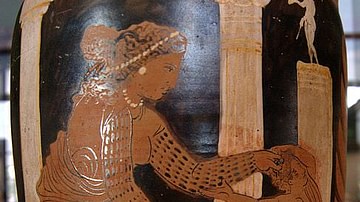
Definition
Medea (Play)
The tragedy Medea was written in 431 BCE by Euripides (c. 484 – 407 BCE). Euripides authored at least 90 plays of which 19 have survived intact. As with the plays by Sophocles and Aeschylus, the audience was already well aware of the myth...
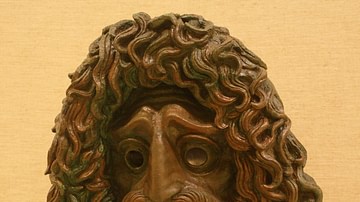
Definition
Ancient Greek Tragedy
Greek tragedy was a popular and influential form of drama performed in theatres across ancient Greece from the late 6th century BCE. The most famous playwrights of the genre were Aeschylus, Sophocles, and Euripides and many of their works...
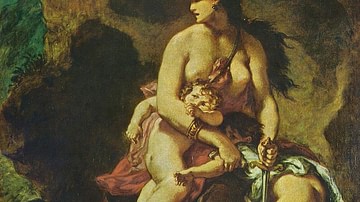
Definition
Medea
Medea is an enchantress and the daughter of King Aeëtes of Colchis (a city on the coast of the Black Sea). In Greek mythology, she is best known for her relationship with the Greek hero Jason, which is famously told in Greek tragedy playwright...
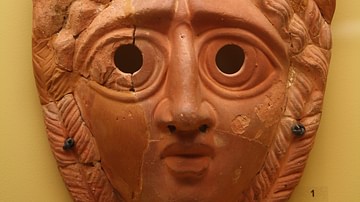
Definition
Ancient Greek Theatre
Greek theatre began in the 6th century BCE in Athens with the performance of tragedy plays at religious festivals. These, in turn, inspired the genre of Greek comedy plays. The two types of Greek drama would be hugely popular and performances...
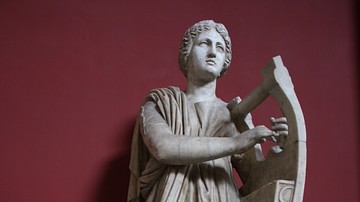
Definition
Ancient Greek Literature
Greek literature has influenced not only its Roman neighbors to the west but also countless generations across the European continent. Greek writers are responsible for the introduction of such genres as poetry, tragedy, comedy, and western...
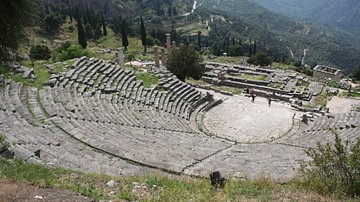
Article
Greek Theatre Architecture
The ancient Greeks built open-air theatres where the public could watch the performances of Greek comedy, tragedy, and satyr plays. They then exported the idea to their colonies throughout the Aegean so that theatres became a typical feature...
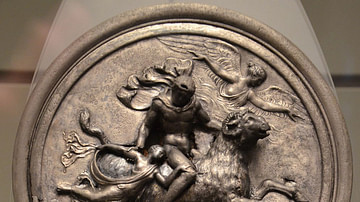
Definition
Golden Fleece
The golden fleece is the fleece of a flying, winged ram named Crius Chrysomallos, or 'Golden-fleeced Ram', in Greek mythology. It is best known from the story of Jason and the Argonauts, who were sent by Pelias, the ruler of Iolcos, to retrieve...
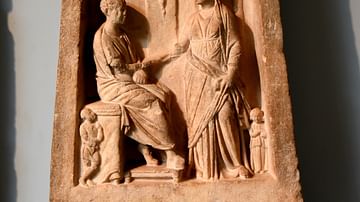
Article
The Value of Family in Ancient Greek Literature
When looking at Ancient Greek literature, one can see the importance family plays in Greek culture. We see this displayed in the Greek works Medea by Euripides and Antigone by Sophocles. Throughout these literary works we see that family...

Definition
Greek Mythology
Greek mythology was used as a means to explain the environment in which humankind lived, the natural phenomena they witnessed and the passing of time through the days, months, and seasons. Greek myths were also intricately connected to religion...
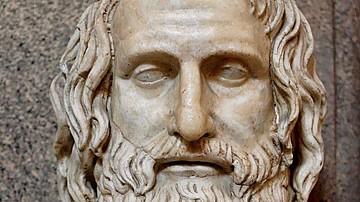
Definition
Euripides
Euripides (c. 484-407 BCE) was one of the greatest authors of Greek tragedy. In 5th century BCE Athens his classic works such as Medeia cemented his reputation for clever dialogues, fine choral lyrics and a gritty realism in both his text...